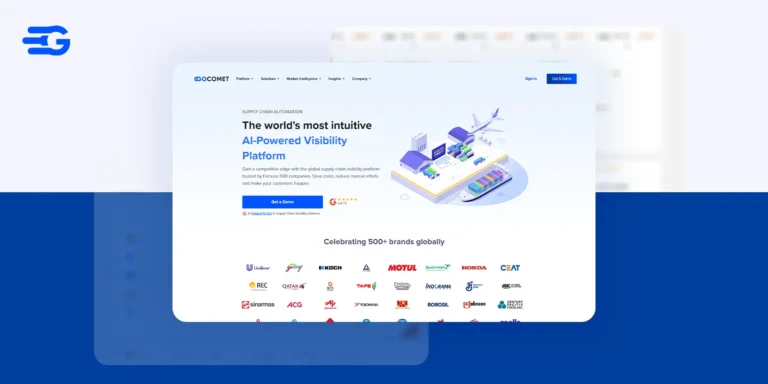Questions to ask while buying a supply chain software
If you’re in the supply chain industry and looking to adopt a Supply Chain Management (SCM) software to refine your operations and reduce costs, you will want to ensure that you invest in the right system.
The emergence of cloud-based solutions has heralded a new era in the supply chain management software space. Its benefits have not only been widely established and recognised but are also being applauded by industry leaders. The availability of such systems means that as a supply chain professional you can easily access and leverage the latest technology available in the market to quickly optimise your operations.
However, to get the desired results it is crucial that you identify a system that best suits your company’s needs and budget. A thorough evaluation will help you weed out systems that are inconsistent with your business needs and help identify those that will truly provide value. Asking and finding answers to the right questions while making the purchase will minimise risks and increase your ROI.

To be confident about your decision, before you jump on board with a software consider the following questions:
Is the software provider capable of understanding your business and does the system meet your needs?
A good starting point can be to understand if the software developer you are in conversation with has worked with someone who has faced the same set of problems that you do and managed to successfully solve them. It’s crucial that you check if they have built solutions in their product to the challenges you face in your business.
Irrespective of how narrow your focus is while looking for a solution, a competent Software as a Service (SaaS) platform should be able to address your problem areas. While considering which vendor to partner with, make sure to choose someone who understands your business and requirements the way you do. This will help ensure compatibility in the long run.
Can the software be scaled up to meet changing needs and easily integrated with your existing systems?
Before you make the decision, check whether the application truly offers the scalability and ease in integration that a cloud-based solution would offer. The system you adopt should be capable of being upgraded easily in the long run without heavy expenses. Moreover, it should be easy to integrate with your existing systems.
In fact, the best way forward is to invest in a solution that can be customised to meet your specific requirements. Remember, that if a system is not easy-to-use and flexible enough, it will tend to create more problems than it will end up solving. So, make sure that the system you choose enhances and simplifies your operations and doesn’t cause additional trouble in the process.
How much does the system really cost?
You need to know how much it will cost you to operate the software in the long-term. Do not forget to get a line by line pricing of the solution from the vendor and be mindful of companies offering you a low-cost solution. A good rule of thumb is that if it sounds too good to be true, it probably is and hidden charges may lay in wait.
Find out the cost of maintaining the system, upgrading it in the long term, etc. or overtime you may find that the money you hoped to save is going towards maintaining the system. Implement a solution that doesn’t require you to rush to the vendor’s support services every other day.
What kind of customer support does the software provider offer?
An efficient customer support system is yet another vital factor you must consider while choosing software. No matter how good the system is, in all likelihood at some point you may face an issue that needs additional support. While automated support systems can be helpful, there are certain issues that cannot be addressed without real-person customer support. It is thus necessary to make sure that the vendor you decide to work with will provide timely assistance throughout the life of the product.
Can the software provider deliver capabilities that can cater to future industry trends?
The supply chain space is constantly evolving and lends itself quite well to digitisation and automation technology. The question you need to ask is five to ten years down the line, will your software provider be able to deliver capacities that empower you to stay ahead of the industry.
The vendor you work with should be able to evolve with time and create solutions for the years that wait ahead. Do your research well about the products they have planned for the future. While you may assume that their future plans shouldn’t be an area of concern for you in the present, it will definitely speak volumes about the service provider.
Make the right choice…
Choosing software that will be closely associated with your operations, can be an enormous task. As the software will be an extension of your business and play a crucial role in providing business insights and driving savings, it is important that you research well and make the right choice.
To learn about how GoComet’s integrated supply chain and logistics management software can help you streamline operations with improved visibility, efficiency and productivity while driving significant cost savings, reach us here.






